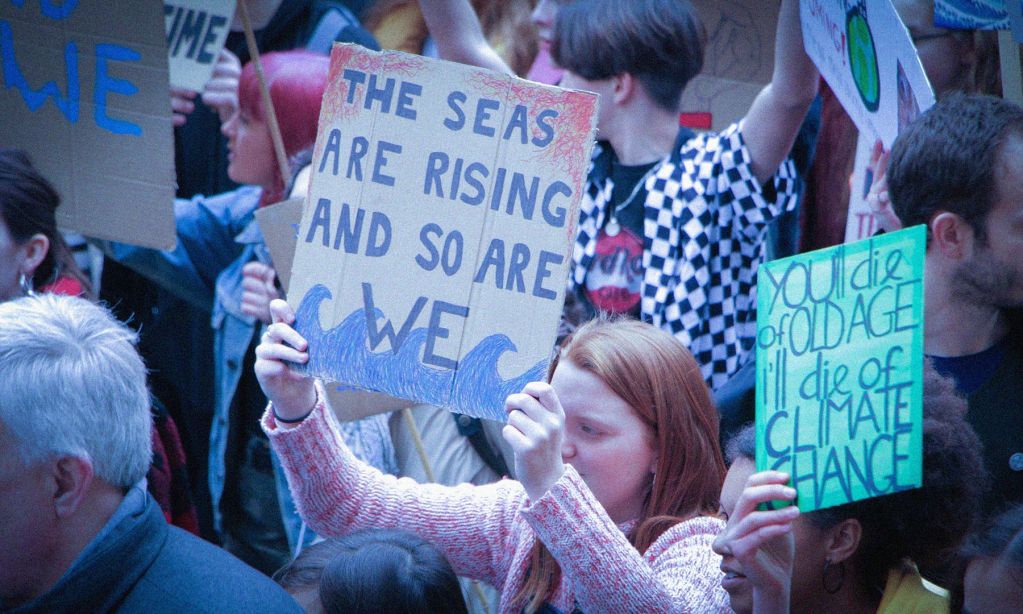No individual, region or even nation state can reduce greenhouse gas emissions far enough to save the rest of us. And no one person or government can, on their own, build a better global economy—one that values sustainability and inclusion over profit and extraction.
Some will tell you we shouldn’t even try. Why must Canada reduce emissions if China produces so many more? Why must we invest in green, public infrastructure instead of letting the market run its course?
These and other such refrains are common enough, disingenuous as they may be. Yet the solution to grand collective problems like climate change is not to give up, but rather for everyone to do their damnedest to turn things around.
At the CCPA, our focus has historically been on the federal and provincial governments. States and their subdivisions can, and should, be doing much more to tackle the intertwined crises of climate and inequality. Our federal government, in particular, has a vast, untapped potential to redirect the Canadian economy toward nobler goals, as we have long argued.
Were Canada and every other nation to begin pulling its weight, we could move quickly and seriously to address the global climate crisis.
But for many communities across the country, that promise of far-flung, high-level action is disconnected from their day-to-day reality. Choked by wildfire smoke, drowning in floodwaters and anxious about an uncertain economic future, many feel abandoned by their governments, at all levels.
What is a community to do when the state is not moving quickly or forcefully enough to address the greatest crisis of our lives?
That is precisely the question that drove Max Cohen, Isabella Pojuner, Avi Lewis and me to write Don’t Wait for the State, a report co-published by the CCPA and the University of British Columbia’s Department of Geography. In it, we argue that grassroots climate organizing—citizen-led efforts to unite communities and advance shared visions for a better future—can play an integral role in advancing people-focused local climate action in Canada.
In the same way that the contributions of each nation state comprise the totality of global climate action, the energy and ideas of individual communities comprise Canada’s efforts to tackle and respond to the climate crisis.
We need community-level transition roadmaps for every place in Canada—concrete plans for transitioning away from fossil fuels and building a more inclusive, sustainable and prosperous economy for all.
It is no simple task. But the good news for Canadian communities is that they need not start from scratch.
In our research, we discovered dozens of cases of communities taking the lead on climate action, including in Australia, Ireland, Mexico, the U.S. and here at home. From those cases, we identified a common set of principles that make for effective organizing, including the importance of reckoning with historical injustices, of employing democratic processes, and of building movement capacity with training and leadership development.
Based on those principles, we propose a five-step template for action called the “5D” framework for grassroots climate organizing.
First, define the community in question. Who is the movement working for?
Second, design inclusive and democratic organizing processes. Who speaks for the community?
Third, dream up a greener future through a collective visioning process. What are we trying to achieve?
Fourth, determine the constraints standing in the way of the dream. What obstacles must be overcome?
Finally, deliver real alternatives for the community, however humble they may be, to show that organizing is about more than words. What can we do for our community today?
In the following pages, you will meet courageous climate organizers from across Canada and beyond who are already delivering for their communities. From coast to coast to coast, there is no shortage of energy or ideas for building a better future.
But not every community is so far along. Many parts of the country feel trapped by oil and gas interests. Or discouraged by dismissive, denialist leaders.
Our hope is that more citizens, inspired by their peers and equipped with tools like the 5D framework, take up the torch and begin the difficult but necessary work of grassroots climate organizing in their communities.
Ultimately, the climate crisis and the various social and economic dislocations that it entails are coming, whether we like it or not. The choice for Canadian communities is not whether to adapt, but how.
And where the state fails to lead, it falls to brave and compassionate citizens to pick up the slack.







